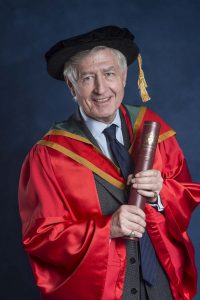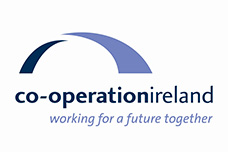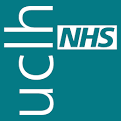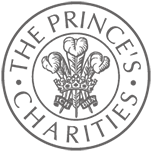
Dr. Christopher Moran receives honorary Doctorate of Laws from the University of Ulster for his commitment to society
Dr. Christopher Moran, Chairman of Co-operation Ireland thanked the University of Ulster for bestowing the honour upon him and, in his remarks to the assembled academics and graduates, he acknowledged the potential that Northern Ireland has. He said:
“Looking out before me today I see enormous potential. I also see – with a few exceptions that most of you were probably born in and around 1994, the year of the first ceasefires. You are the first real post-Troubles generation.
“For those of you who stay in Northern Ireland – or indeed for those who leave and come back – you have an opportunity to build a very special place for your families and future generations.
“We need to build a shared society where everyone can view Northern Ireland as home; where everyone feels their traditions and aspirations are respected. That is as much a task for you as for the politicians.
“Having travelled the world on business, my view is that Northern Ireland has incredible potential. It offers a quality of life not available in many modern societies yet is also highly appealing to potential investors, primarily due to the calibre of graduates such as yourselves. That combination is something of a holy grail in the word of economic development”.
In his address Professor Hugh McKenna, Pro-Vice-Chancellor (Research and Innovation) University of Ulster said of Dr Moran:
It is a worthy thing when you achieve the most you can do with the time you have in life. Our Honorary Graduate has accomplished a great deal, taking advantage of all the possibilities that came his way, and yet he has also found time to give of himself– he acquires and he gives back.
Christopher Moran is a successful businessman, and well-known public figure. As a philanthropist, he supports institutions in a wide range of sectors including national heritage, arts, health & wellbeing, faith and international relations.
Christopher was born in modest circumstances in north London on 16th January 1948. Grammar school-educated he made his first million by the age of 21.
With a passion for national and built heritage and in particular the Tudor Period, he purchased Henry Vlll’s Chain of Office which is undoubtedly priceless. It has pride of place in Crosby Hall, a fifteenth century 30-bedroom Tudor mansion which Christopher owns on the banks of the Thames. To set it in context Crosby Hall was built around 1546, at about the same time that Michelangelo was appointed chief architect of St Peter’s Basilica in Rome. With a forensic attention to detail Christopher has painstakingly brought this most historic house back to its past glory. The building is organised around a courtyard with a fountain of Diana surrounded by a garden designed by the Marchioness of Salisbury using plants original to the period. It was previously the household of Sir Thomas More, one time Chancellor of England who was beheaded by Henry Vlll. There is little doubt that if Sir Thomas walked through the door today, he would instantly recognize and feel at home in his former residence.
In addition to Crosby hall, for more than 20 years Christopher Moran has also owned the 48,000-acre Glenfiddich and Cabrach estate on Speyside in Scotland. It is laudable that he makes his properties available for the public good, organising and hosting fundraising and other important events therein.
Christopher realises what he has been blessed with and goes out of his way to support the people and the projects he believes in. These include the Mary Rose Trust, where he is supporting the development of a new world class museum for the famous Tudor flagship.
He also plays a major role with one of London’s cultural institutions – the London Symphony Orchestra. He chairs the LSO’s Finance Board, working on its Advisory Council, and acting as a Trustee on its Endowment Trust.
Christopher’s contribution as Chair of University College London Hospitals’ Charitable Foundation helped UCL deliver cutting-edge care for patients living with cancer and other life-threatening conditions. One of the Foundation’s projects that was very close to his heart was raising funds for a new state of the art £110 million Cancer Centre which offers innovative ways of treating patients through ground breaking translational research.
As a firm believer in inter-faith cohesion, Christopher Moran also serves as Vice-Chair of the Council of Christians and Jews in their promotion of dialogue and understanding between faith communities.
In addition, he supports the work of His Royal Highness, The Prince of Wales as a member of the Prince’s Charities’ Council. In this role he provides strategic advice to ensure the long-term sustainability of the charities and creates a wider network to support The Prince’s vision for them.
Furthermore, it was Christopher who masterminded the £30 million sale of Conservative Central Office, the historic backdrop to Thatcher’s election victories. As a result he was asked by David Cameron to spearhead the search for a new conservative Headquarters in Westminster.
I know you are asking yourself if he gets any spare time; well when he does, his hobbies are architecture, opera, art, politics, and country pursuits.
Being the son of an Irish father, Christopher is keenly aware of the complex and historic ties between Britain and Ireland. He is Chairman of Cooperation Ireland, the leading peace-building charity on the island of Ireland. Since it was established in 1979, Co-operation Ireland has created opportunities for groups from the two main religious communities in Northern Ireland and from both sides of the border. It encourages and supports cross-community programmes where they can learn about each other’s traditions and cultural backgrounds.
Interestingly, it was at Christopher Moran’s instigation that in 2005 Her Majesty Queen Elizabeth first met Irish President, Mary McAleese at his home in Crosby Hall. This set the scene for a further meeting between these two heads of state in Hillsborough Castle in 2009. This represented the build up to the Queen’s and Prince Philip’s historic state visit to Ireland in May 2011 where one of the highlights was the famous handshake between the Queen and Martin McGuiness. In her speech Her Majesty thanked only two organisations: the Garda Siochana for their security work and Co-operation Ireland for its peace building work.
Earlier this year, Christopher was instrumental in the state visit to Britain of Michael D Higgins, the current President of Ireland culminating in the historic dinner hosted by her Majesty in Windsor Castle, where once again the she praised the work of Co-Operation Ireland for the positive change it was making.
In 2012, Peter Robinson, our First Minister stated “I want to pay tribute to the work of Co-operation Ireland. You have played a very positive role, not just during the troubles, but you continue to do so today in this new era in Northern Ireland. I know the first hand commitment that Christopher and the whole team bring to this important work. It was no accident that when we were looking for someone to host the historic hand shake element of her Majesty’s Diamond Jubilee visit last year that it was Christopher Moran that we turned to. I want to thank Christopher for the role he plays with Co-operation Ireland and for his wider interest in Northern Ireland.
Christopher knows that persuading opposing communities that there are alternative ways to resolve long standing differences takes patience and a willingness to engage in dialogue – but most important it requires leadership. A leader is someone who understands the people’s need for a better future and is willing to guide them there. Christopher has shown such leadership. He has held up a mirror not only to a time period but to all of us and has demanded that we move on to a better inclusive future.
More recently Christopher wrote “The question we must answer collectively is how and when we will break the cycle of sectarianism? When will we understand that it is more productive to talk to other communities, than block a road or lob a brick over a so called peace line? Which generation will have the vision to figure this out? We thought it might be this one and it still can be. Collectively we can’t let another generation be enslaved by the snares of the past. We will have to get to a point where as well as demanding our rights we also pledge ourselves to protecting the cultural tradition and religious ethos of the other community. This will give us the best opportunity to build a genuinely shared society”.
Leaders such as Christopher Moran have always been admired; those with the courage, faith and intuition to say it like it is. In business these people take calculated risks, care less about the bottom line and more about ideas and innovation and are intent on bettering the world along the way. Christopher Moran defines this approach. He has not only made it to the top from a humble beginning but he has also made extraordinary contributions through his philanthropy.
Most importantly, he has achieved success the old fashioned way – he earned it; he worked hard and continues to do so. He pursues things that seem unrealistic and unreachable until the very moment they become a reality. His story is a great lesson for our graduates today and for young people everywhere because it debunks so many of the prejudices and stereotypes that unfairly hold young people back. He has shown that the most successful are those who never forget where they came from, who cling to values bred into them by family, faith and community.
Christopher’s twin sons Charles and Jamie accompanied him at the ceremony.
// Ulster University Alumni 2014: https://www.ulster.ac.uk/alumniandsupporters/alumni/distinguished/honorary-graduates/2014/christopher-moran





